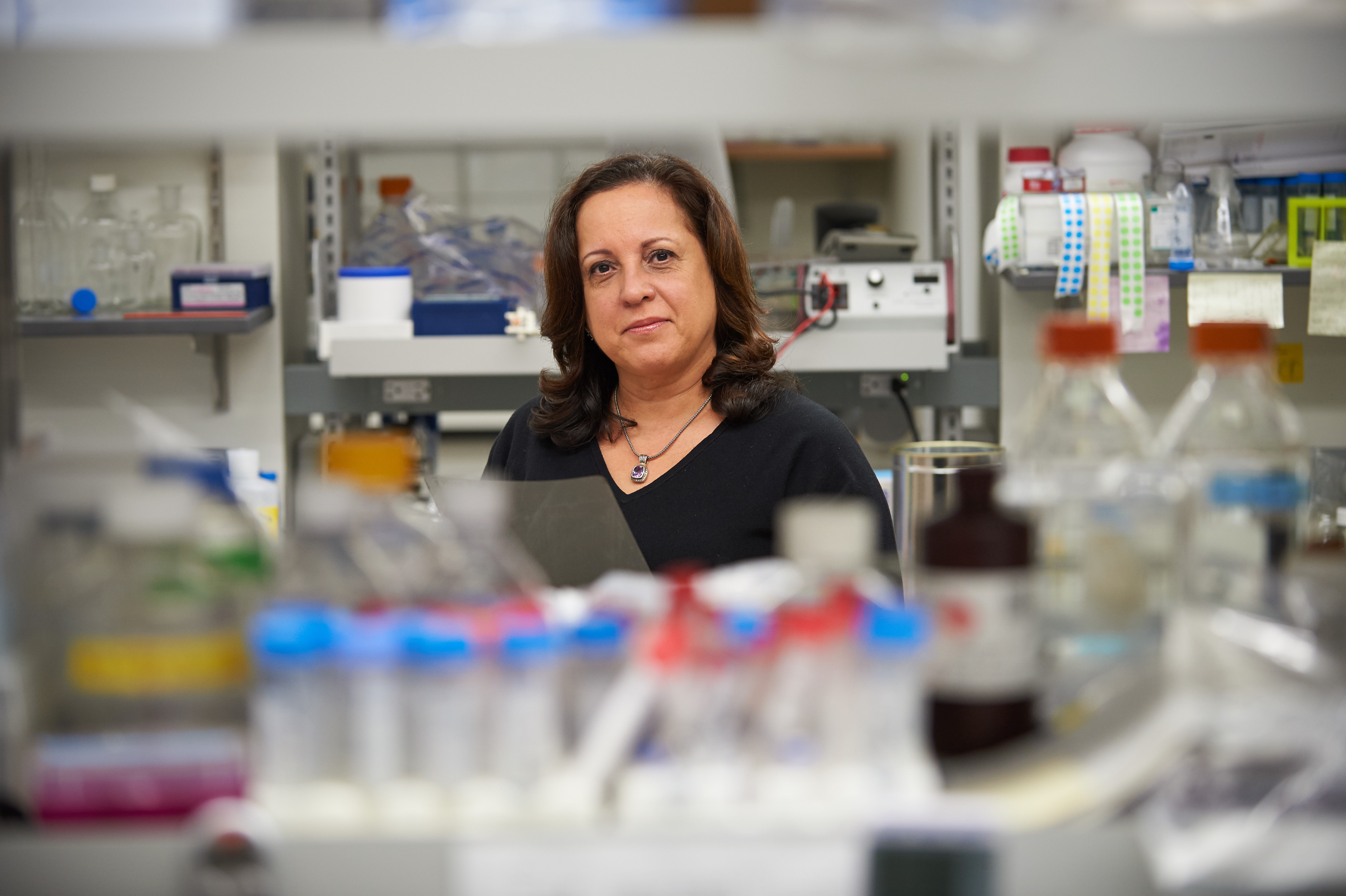Clogged arteries, chronic inflammatory disease, stroke, heart failure. These conditions are all characterized by natural inflammation of the cells in our bodies that are supposed to help heal injured tissue. But what if our inflammatory response misfires?
Dr. Annabelle Rodriguez-Oquendo, M.D., professor of cell biology at UConn’s School of Medicine, was recently issued a diagnostic patent to test for a genetic predisposition for an abnormal inflammatory response that causes several life-threatening disorders, like coronary artery disease and chronic inflammatory disease.
Lipid Genomics, the startup Rodriguez-Oquendo founded in 2010, has exclusively licensed the technology from UConn Health. The company is currently in discussion with potential investors to continue commercialization of this product, as well as other therapeutic innovations for HDL-cholesterol dysfunction.
In previous research, Rodriguez-Oquendo found that people with low levels of plasma lymphocyte activation gene-3 (LAG3) were at significantly greater risk for heart disease. This is true even in people with high levels of HDL-cholesterol, which has long been considered the “good” cholesterol. Recent findings by Rodriguez-Oquendo and other researchers have called into question the assumption that HDL is in fact “healthy.”
Lipid Genomics’ LAG3 diagnostic test provides physicians and other healthcare providers a unique tool to assess the risk for cardiovascular and immune diseases in their patients. This diagnostic will be particularly beneficial as data about cardiovascular and autoimmune diseases in patients treated with immune checkpoint blockade continues to emerge.
“A LAG3 diagnostic test will be informative in patient selection for acute inflammatory diseases and cardiovascular adverse events in cancer therapies,” says Rodriguez-Oquendo. “We are also confident it will support diagnoses in chronic inflammatory diseases like heart disease, especially since residual risk for cardiac-related conditions can persist even if a patient is on a lipid lowering treatment.”
Experts suggest that in the future, standard methods of testing high HDL could be bolstered by genetic diagnostics like the one Rodriguez-Oquendo invented.
With Lipid Genomics’ test, patients would have alternative treatment options that could prove to be more effective than current standard therapies like statins. If a patient is found to be LAG3-deficient, physicians could provide replacement injections of the protein to address the problem at the genetic level. Lipid Genomics is also developing a drug to treat patients shown to have LAG3 protein deficiency through genetic diagnosis. The company has a pending patent for this recombinant LAG3 biologic.
For Rodriguez-Oquendo, a physician-scientist and Linda and David Roth Chair for Cardiovascular Research, getting better tests and therapies into patients’ hands is the ultimate goal.
She came to UConn Health from Johns Hopkins University in 2012. She was drawn to UConn Health because of Bioscience Connecticut, Gov. Dannel P. Malloy’s plan to jumpstart Connecticut’s economy by supporting bioscience research, innovation and commercialization, which would create jobs and bring revenue to the state while furthering a greater cause.
“I was attracted to the state and UConn because of the tremendous investments in bioscience and the focus on entrepreneurship taking place in Connecticut,” says Rodriguez-Oquendo. “For a faculty entrepreneur, it’s critical to be a part of an innovation ecosystem like the one we see growing in Connecticut.”
Lipid Genomics is located at UConn’s Technology Incubation Program (TIP) in Farmington on the UConn Health campus. In addition to access to state-of-the-art wet and dry labs, TIP offers startups customized business mentoring, connections with potential investors, and access to research resources available at UConn and UConn Health. Like Lipid Genomics, many TIP startups are based on technologies developed by faculty.
“Dr. Rodriguez-Oquendo’s LAG3 diagnostic is a prime example of the groundbreaking technologies being developed in UConn and UConn Health labs every day,” says Radenka Maric, UConn’s vice president for research. “The University is committed to supporting faculty and student entrepreneurs like Dr. Rodriguez-Oquendo to help early-stage innovations advance beyond the lab, join the ranks of other successful Connecticut startups, and have an impact in our communities and our state economy.”



